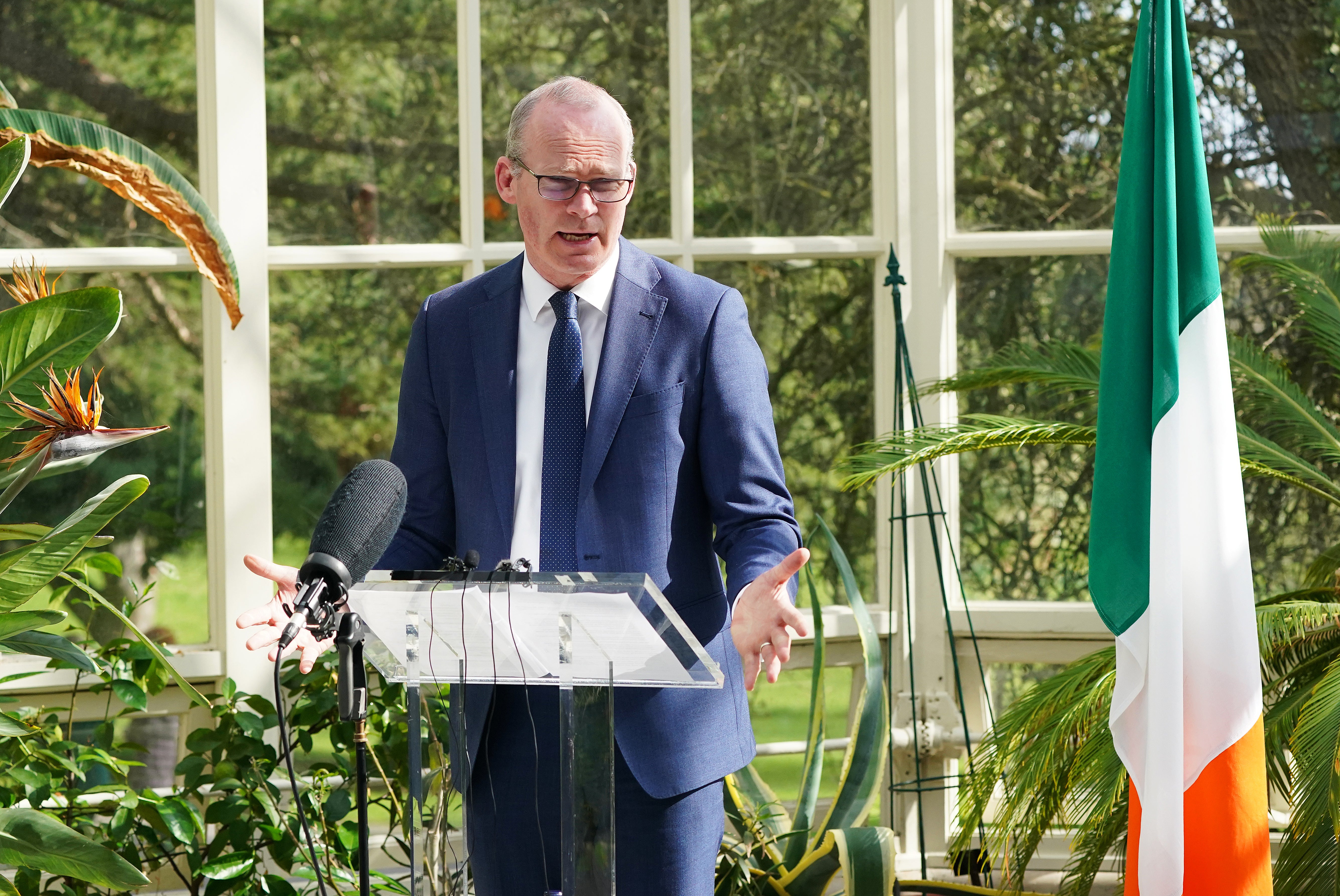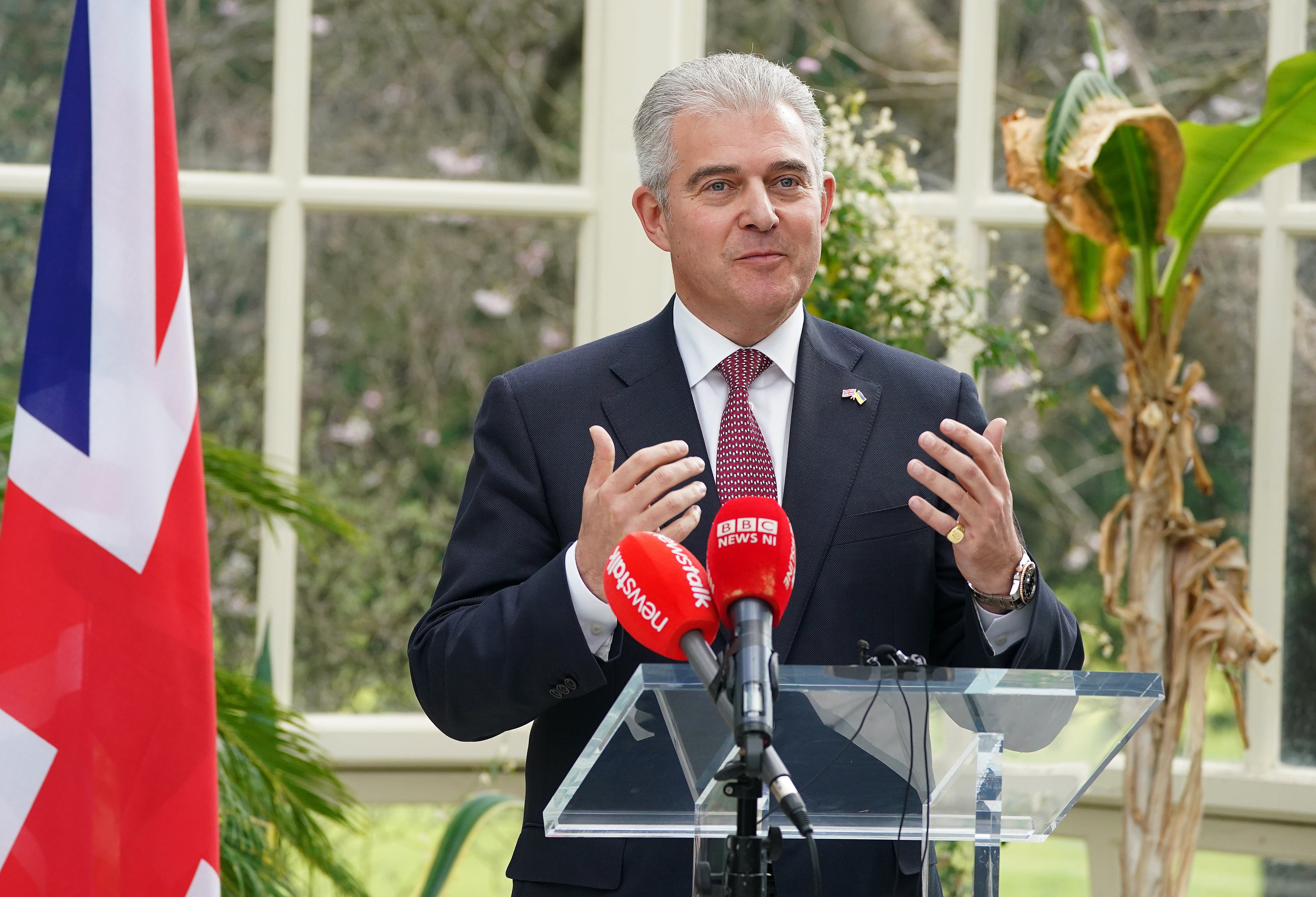
The Irish Government has appealed for “special treatment” for the island, citing serious concerns about a planned UK requirement for foreigners to have an Electronic Travel Authorisation (ETA) pass when crossing the border.
On Tuesday, MPs in the House of Commons voted to reject a Lords amendment that sought to ditch the requirement for foreigners to have an ETA pass when making a local journey to Northern Ireland from the Republic.
The plan has proved controversial, even as the UK Government has insisted it will not mean checks at the border between the Republic and Northern Ireland.
The border proved a major sticking point in Brexit negotiations amid concerns the seamless nature of movement between the two jurisdictions could be effected by the UK exit from the EU.

Irish Foreign Affairs Minister Simon Coveney raised the issue during a meeting with Secretary of State for Northern Ireland Brandon Lewis in Dublin on Wednesday, as part of the British-Irish Intergovernmental Conference.
Mr Coveney said he made his concerns clear during the meeting but acknowledged the plan would not mean checks.
“The concern we have is that for many, many years now the British and Irish governments have worked together to ensure free movement in the island of Ireland, north and south, is protected,” Mr Coveney said.
He said he held out hope that Irish concerns might still be heeded, adding: “I think it is important to say that this is not legislation that is finalised yet.”
Mr Coveney said the relationship between the Republic and Northern Ireland was a unique one.
He added: “I suppose not for the first time we’ll be asking for special treatments to try to protect that relationship.”
Mr Lewis defended the move and played down the concerns that have been raised about the proposal.
He stressed there would be no checks at the border between Northern Ireland and the Republic.
Mr Lewis said: “The ETA is a system that countries around the world have been bringing into place over the last decade or so. We’ve seen the EU bringing a variation of an ETA and the idea is very simple, very clean, simple, fast system for people to be able to use.”
He said it would not have an impact on the Common Travel Area.
Mr Lewis added: “We’re keen to ensure this one works for businesses as well in the way that it has done in other countries around the world.”

Mr Coveney spoke at length about his worries about the scheme following his discussion with Mr Lewis, which he described as “good”.
“The essence of our issue here is that for many years now, since a peace process was agreed, the creation of normality on this island between North and South in terms of relationships, business travels, study, work, and so on has been based on uninterrupted travel opportunities and movement of people.
“And we think that’s worth protecting.
“Even though I accept that what the British Government are designing here is a streamlined system based on international best practice and so on in terms of how people cross borders, and so forth.
“But Northern Ireland and the island of Ireland, in terms of the relationships between North and South, is a very unusual construct and series of relationships and treaties and agreements and so on.”
In a joint communique issued after the meeting, both sides said they noted “with regret, the developments at Stormont since it last met in December”.
“The UK and Irish governments reaffirmed their commitment to the full functioning of all of the political institutions established by the Belfast/Good Friday Agreement, including the North South Ministerial Council, and the importance of respecting the agreement in all of its strands.
“The conference noted the importance of addressing the outstanding issues in the context of the Northern Ireland Protocol which is currently subject to continuing engagement between the EU and the UK.
“The Irish Government and the UK Government provided an update on their respective commitments under the New Decade, New Approach agreement, which restored the institutions in January 2020.”







